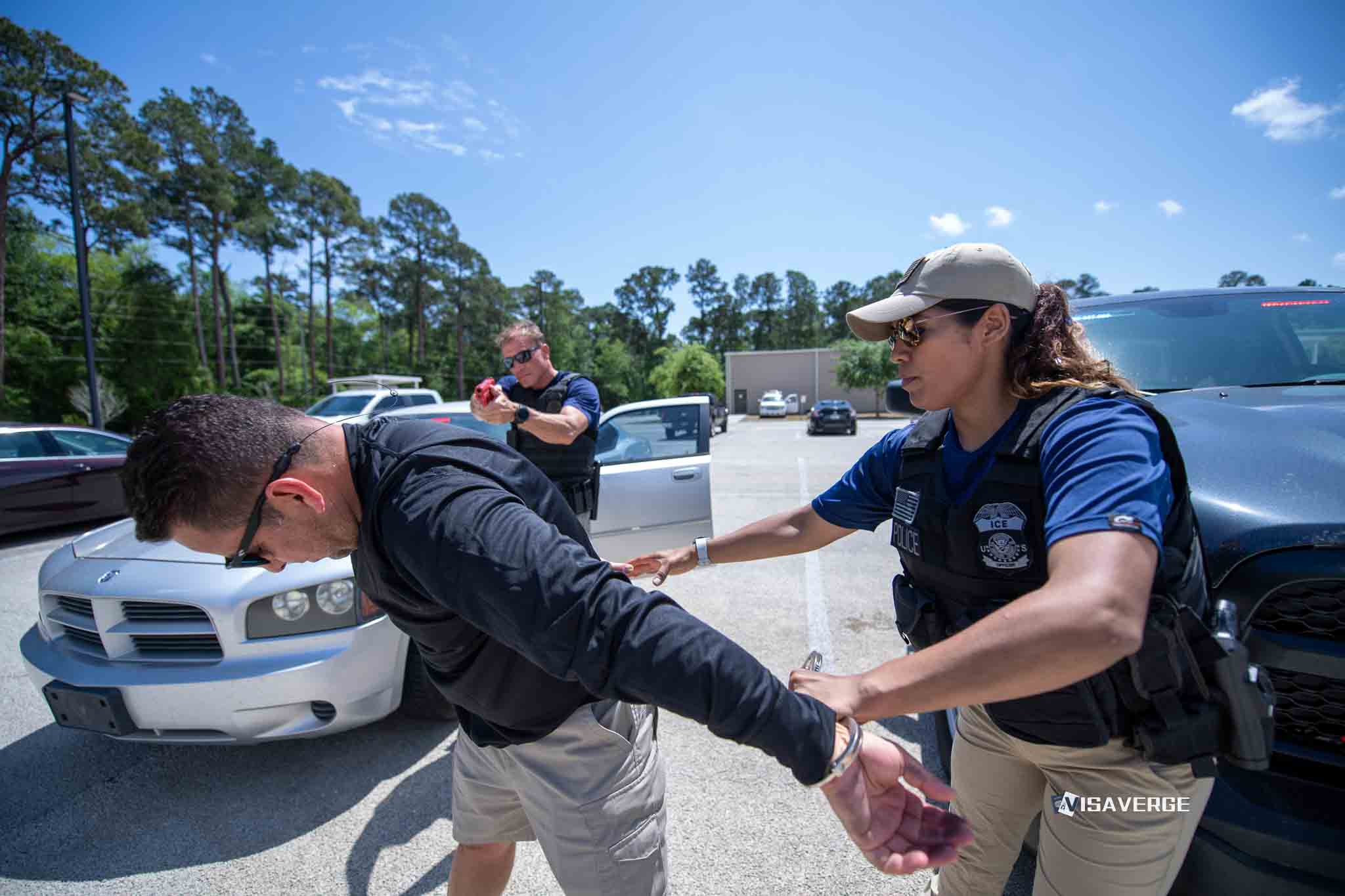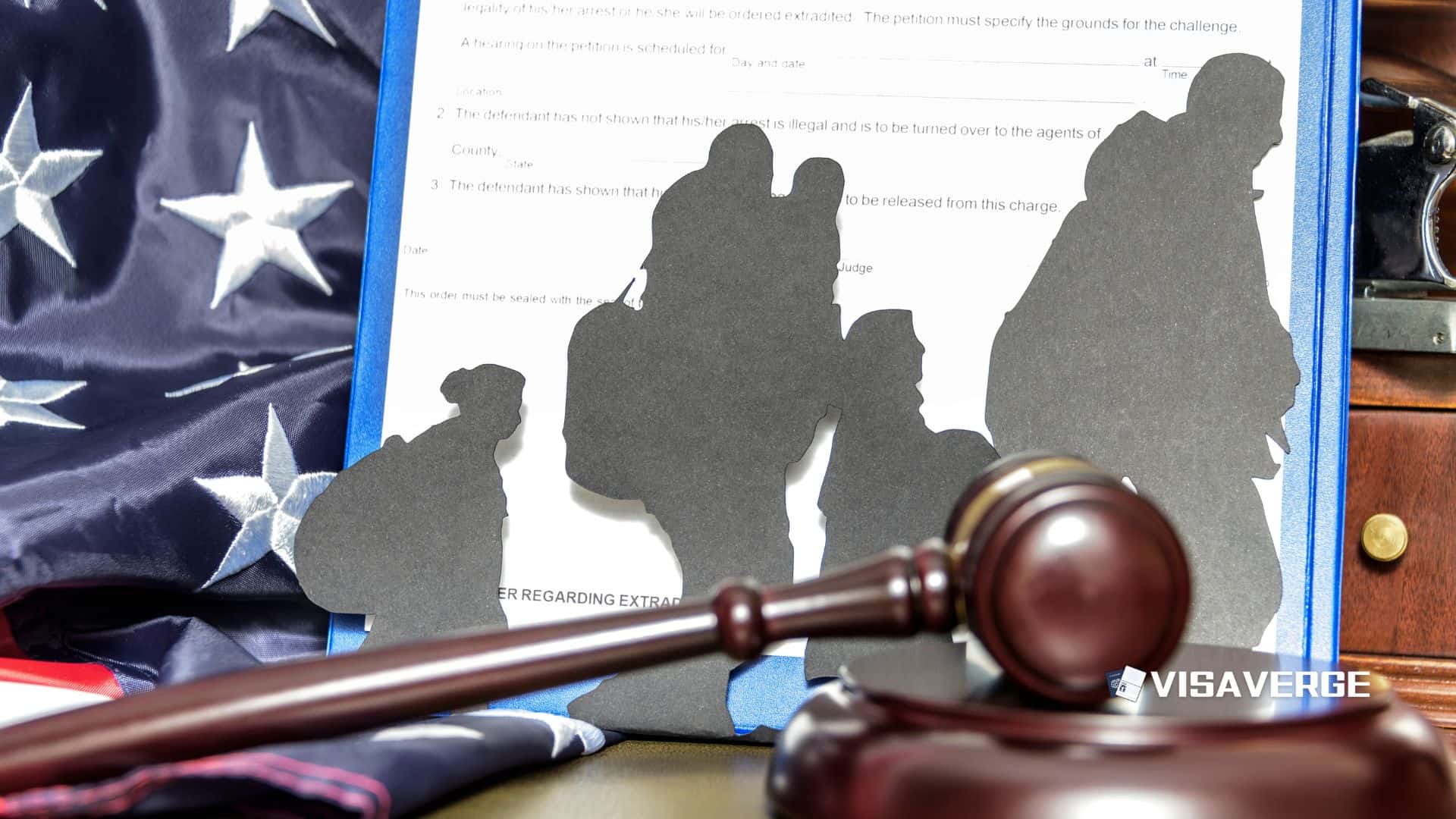(ATMORE, ALABAMA) Six people were arrested in the Atmore area as part of a multi-agency immigration enforcement push that officials say aims to dismantle a criminal network tied to immigration violations, drug trafficking, human smuggling, and document fraud. The action, carried out in mid-July and confirmed by authorities on August 12, 2025, is one piece of a wider set of coordinated operations across Alabama led by the Gulf of America Homeland Security Task Force with support from the FBI and Homeland Security Investigations (HSI). Statewide, authorities reported more than 40 arrests, including the six in Atmore.
Officials described the Atmore activity as linked to 14 raids across Alabama on July 15, 2025, which focused on businesses suspected of hiring unauthorized workers and serving as hubs for broader criminal conduct. Investigators say the target is a transnational group that “profits from exploitation,” moving drugs like methamphetamine and cocaine, arranging human smuggling, and running schemes involving wire and bank fraud. Agents also seized firearms during the sweep, with authorities citing at least 20 guns recovered in related searches.

While the operation’s headlines center on immigration, senior officials stressed the cases are not only about immigration status. The focus, they said, is on criminal conduct that often overlaps with immigration offenses—especially document fraud used to secure jobs, launder money, and move people and goods. According to analysis by VisaVerge.com, recent task force efforts in Alabama reflect a growing federal–state model where immigration probes run side-by-side with narcotics, fraud, and weapons cases, allowing investigators to bring a wider set of charges.
Operation details and arrests
Authorities said the Atmore arrests were part of a years-long investigation meant to chip away at a multi-layered criminal ecosystem. The Gulf of America Homeland Security Task Force brought together federal agents, state troopers, and local police to share intelligence and coordinate warrants.
Sites included restaurants—some identified as Mexican eateries—and other small businesses in multiple cities. Officers executed search warrants, interviewed workers and owners, and collected records tied to hiring practices, payroll, remittances, and identity documents.
Investigators highlighted several areas of focus:
– Immigration-related offenses: suspected use of false identity papers and unauthorized employment.
– Human smuggling: arranging travel, housing, and work for migrants in exchange for illegal fees.
– Drug trafficking: distribution of methamphetamine and cocaine through local networks.
– Financial crimes: wire fraud and bank fraud linked to payroll and remittance channels.
– Firearms: seizure of at least 20 guns during related searches, some from business locations.
One person, Cesar Campos Reyes of Lee County, remains at large. Authorities say he is wanted for multiple crimes, including human smuggling, and warn the public not to approach him. Anyone who believes they have seen him should contact FBI Mobile through its official channels. Officials did not release the names of the six individuals arrested in Atmore, citing ongoing investigations and pending court actions.
For readers seeking background on how federal agents handle cases like these, the U.S. Immigration and Customs Enforcement page for Homeland Security Investigations (HSI) provides an overview of HSI’s role in transnational crime and immigration enforcement: https://www.ice.gov/hsi.
State laws, federal partnerships, and community impact
Alabama’s policy framework has shifted notably in 2025. In May, Governor Kay Ivey signed Senate Bills 158 and 63, which state leaders say tighten enforcement. The laws:
– Bar the use of foreign national driver’s licenses as voter ID.
– Mandate fingerprinting and DNA collection from “illegal immigrants” in custody.
State officials argue the measures improve public safety and protect election rules. Supporters also say the new tools make it easier to identify suspects who may be using false identities linked to document fraud rings.
Civil rights and immigrant advocacy groups counter that such measures can spread fear, especially in mixed-status families, and may push people to avoid basic services or stay quiet about crimes. Those concerns echo a broader 2025 trend: several states are adopting tougher immigration-related statutes and expanding local–federal cooperation under programs such as 287(g). Policy observers say this can increase the number of local agencies involved in detainers, jail screenings, and working directly with federal teams like Homeland Security Investigations (HSI).
Officials involved in the Atmore operation emphasized two points:
1. The actions are aimed at criminal networks, not routine community policing.
2. The investigations are long-term—agents expect more court filings, including possible unsealing of records, in the coming weeks.
Those steps could identify more suspects, clarify the financial paths used to move illicit funds, and set the stage for further arrests.
Immediate effects on the community
For families and workers in Atmore, the effects are immediate:
– Heavier police presence and more traffic stops tied to concurrent warrants.
– Follow-up visits from investigators seeking witnesses.
– Small businesses that rely on immigrant labor may face audits or subpoenas for hiring records.
– Some businesses could be fined or closed if found to be knowingly employing unauthorized workers or supporting schemes tied to smuggling, drugs, or fraud.
People arrested in these operations face a two-track legal process:
– On the criminal side, prosecutors can bring charges such as fraud, smuggling, or drug offenses.
– Separately, immigration authorities can open removal cases. If removal is pursued, respondents generally receive notices and appear before an immigration judge.
Additional legal notes:
– Those with criminal charges may remain in custody under federal hold.
– Those without criminal charges may still face detention depending on risk factors, prior orders, or flight concerns.
– Attorneys can request bond or other relief, but outcomes vary by case.
Businesses caught up in the probe could confront:
– Civil penalties for knowingly hiring or continuing to employ unauthorized workers.
– Criminal charges if owners or managers joined schemes tied to fraud, smuggling, or narcotics.
– Asset seizures when proceeds are linked to illegal activity.
– Licensing issues if agencies move to suspend or revoke permits based on findings.
Cooperation, protections, and what residents can do
Officials stress that community cooperation matters. Residents who have information about suspected smuggling routes, stash houses, or document mills can share tips with local police, the FBI, or HSI.
At the same time, advocates urge that victims—especially those forced into labor or threatened by smugglers—should come forward. Federal law provides protections in some cases, including visas for victims of crimes or trafficking, when they assist law enforcement. Anyone in danger should call local emergency numbers first.
Authorities say the broader Alabama effort will continue. The Gulf of America Homeland Security Task Force plans further coordination with sheriffs, city police, and state agencies. Investigators will track financial flows and seek to dismantle any remaining parts of the drug and smuggling pipeline. In Atmore, that means more interviews, more records requests, and likely more court activity as cases move ahead.
Residents seeking official information can check:
– FBI Mobile for fugitive updates and tip reporting related to the ongoing case.
– The Alabama Governor’s Office for summaries of new state laws affecting immigration enforcement.
– ICE and HSI resources for fact sheets on cross-border crime and victim support, including how to report suspected trafficking.
Authorities reiterated one final warning: if you spot Cesar Campos Reyes, do not approach him. Contact FBI Mobile.
Frequently Asked Questions
This Article in a Nutshell
Mid-July raids in Alabama exposed a transnational criminal network mixing drug trafficking, human smuggling, and document fraud. Coordinated federal, state, and local teams arrested over 40 people. Authorities recovered weapons, financial records, and evidence of payroll fraud. Ongoing probes, fugitives sought, and new state laws in 2025 increase enforcement and community tensions.













